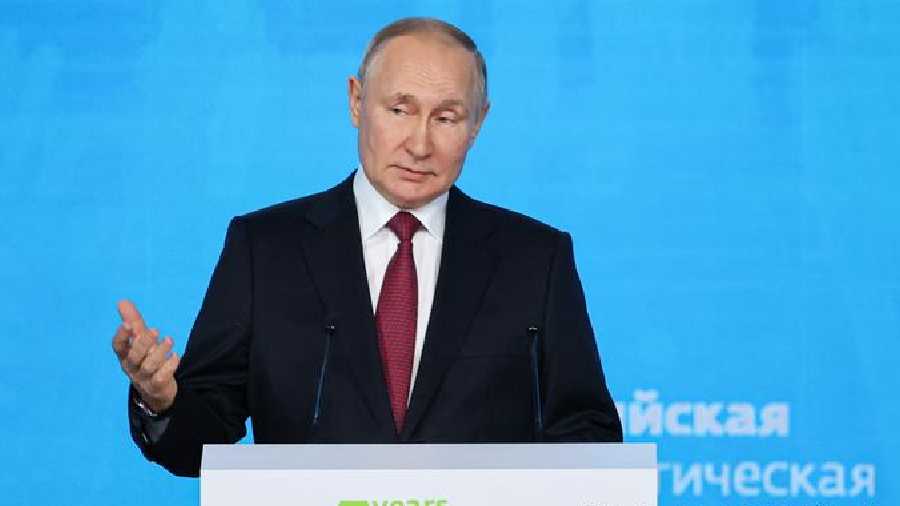President Vladimir Putin on Thursday urged Russia’s billionaires to invest in new technology, production facilities and enterprises to help it overcome what he said were western attempts to destroy its economy.
Addressing Russia’s business elite in person for the first time since the day he sent his troops into Ukraine on February 24 last year, Putin told them their role was not just to make money but to support society. Companies should not hide their assets offshore but should invest more at home, he said.
He hailed the “high mission” of entrepreneurs who looked after their workers and directed their talents not just towards extracting profit but also for the public good.
Billionaires Oleg Deripaska, Vladimir Potanin, Alexei Mordashov, German Khan, Viktor Vekselberg, Viktor Rashnikov, Andrei Melnichenko and Dmitry Mazepin — whose interests range from metals and banking to fertilisers — were among those in attendance.
“I look forward to hearing your opinion on how to make the development of the domestic economy at a new stage more dynamic, more successful so that it leads to a noticeable improvement in the quality of life of people across the country,” Putin told them.
Though welcomed with a standing ovation, he was delivering a tough message to Russia’s richest people: that they need to think more about the needs of the country and less about their own bottom line.
When he met with them at the start of the war, Putin told them he had been left with no choice but to launch his “special military operation” — in effect forcing them into a public display of consent.
Many of the tycoons, known as oligarchs, were subsequently placed under sanctions by the West, but Putin said the attempt to destroy Russia’s economy had failed. He said those western firms that had decided to stay in Russia rather than flee in a corporate exodus last year had made a smart decision. In the clearest sign of rising demands on big business, the government — faced with a widening budget deficit —plans to raise around 300 billion roubles ($3.9 billion) in a windfall tax, though this will not affect oil, gas and coal firms.











